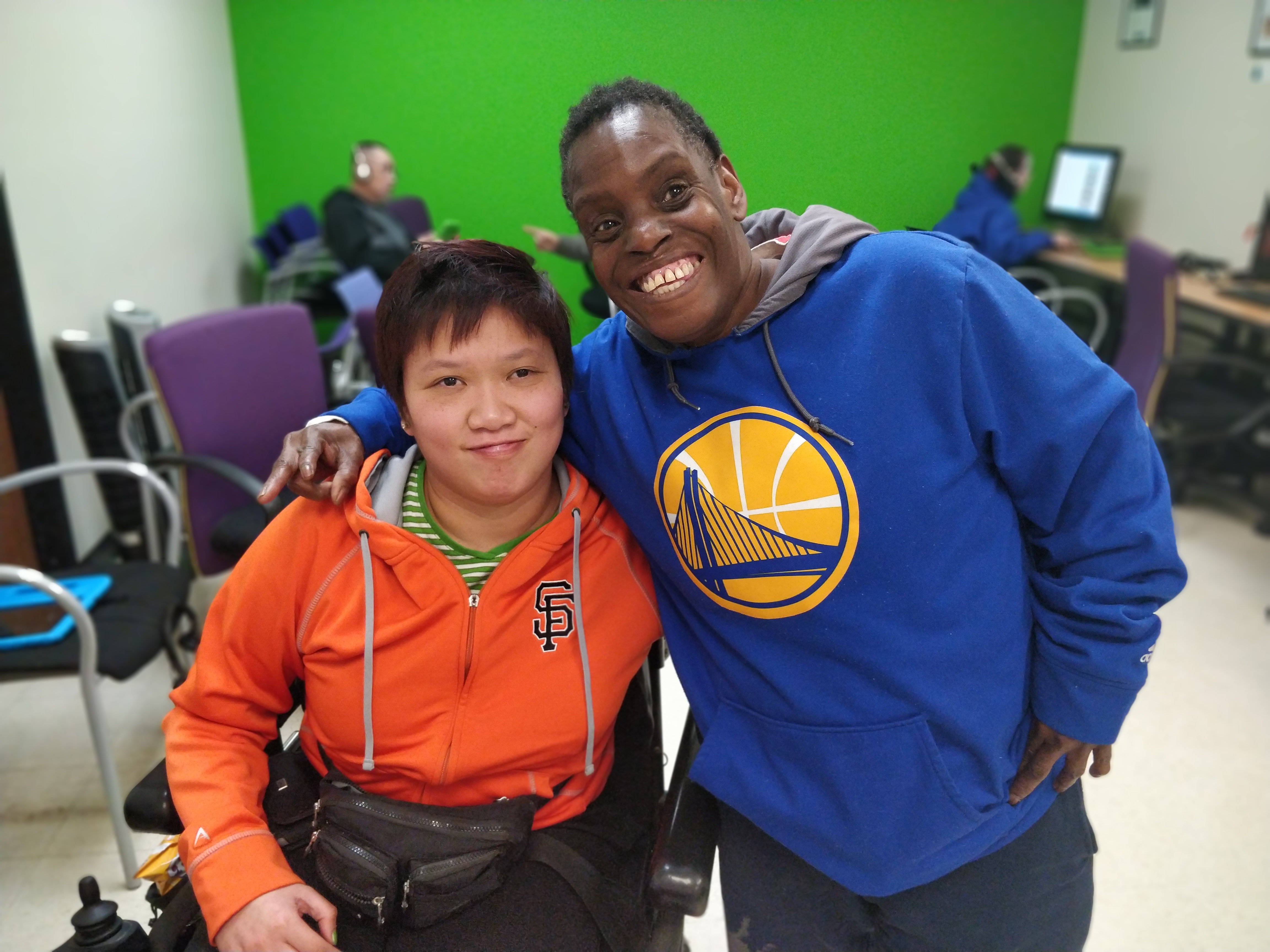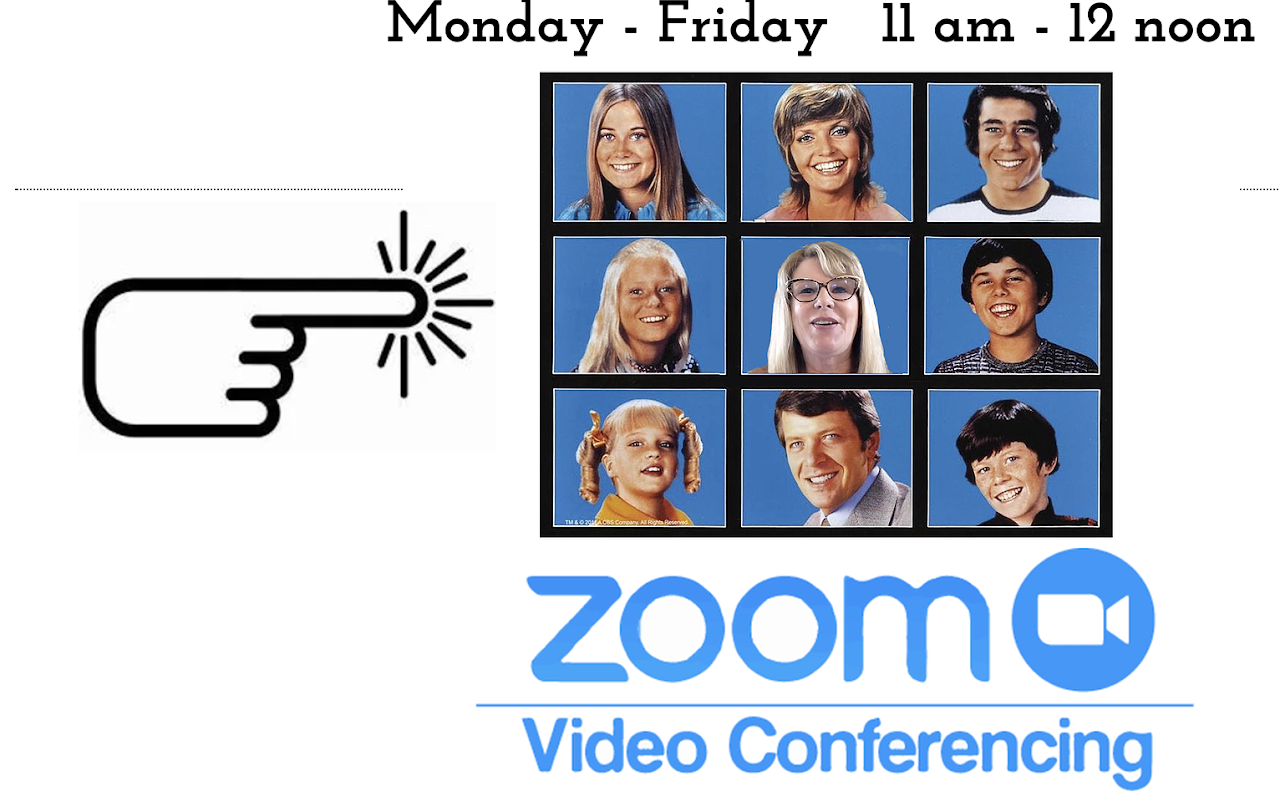Overview
In partnership with Hope Services since 1975, De Anza works with under-served adults who have developmental disabilities:
Developmental Disabilities
Characterized by limitations in both intellectual functioning and adaptive behavior, which include many everyday social and practical skills. (Includes student's diagnosed with Intellectual Disabilities, Down Syndrome, autism spectrum disorders, and/or related conditions)
Tuesdays & Thursdays 4:30 PM - 5:30 PM
Purpose
To advance students toward their employment goals, De Anza Instruction focuses on development in the following areas:
- Self-Determination
- Career Discovery
- Job Readiness
- Physical Wellness
Enrollment in the Program provides:
- Registration Assistance
- Audio-Visual Resources
- Computer Access Lab
- Vocational Instruction
De Anza College staff collaborate with the Hope supported employment department and plays an important role in preparing students for community-based jobs.
Eligibility
Who is Eligible and How do Students Enroll?
New Students
New students who wish to enroll in the De Anza program at Hope sites must be referred
by the San Andreas Regional Center (SARC) or the State Department of Rehabilitation (DR).
They may join the program only when the referral process is complete.
If interested in attending De Anza-Hope Program, current SARC or DR clients should contact their SARC Case Manager or DR Counselor. For those who are not clients, contact their local SARC or DR office to start the client application process.
Continuing Students
Students enroll for one quarter length session at a time. To continue in the following
quarter session's classes, students must re-enroll quarterly. Re-enrollment takes
place at each Hope site and is facilitated by the De Anza instructor.
What is the Cost?
Community college enrollment fees are set by the state of California. However, for most De Anza-Hope students there is no cost to enroll or the fee is very nominal.
Students referred for the program by the Regional Center or Department of Rehabilitation may be eligible for agency funding for the program. Most students receiving Social Security Disability Income (SSDI) or Supplemental Security Income (SSI) qualify for fee assistance through the Board of Governor's Grant Waiver (BOG-W program.) The De Anza-Hope staff will provide assistance in applying for this and can provide additional information.
How are Classes Scheduled?
De Anza-Hope classes follow the De Anza College's quarter system calendar, with the exception of the Summer. The De Anza-Hope Program offers a 10 week Summer quarter, in contrast to most on-campus classes that last 6 or 8 weeks.
Fall Quarter (12 weeks) Late September - mid December
Winter Quarter (12 weeks) January - end of March
Spring Quarter (12 weeks) Early April - end of June
Summer Session (10 weeks) July - mid September
Once enrolled, it is the expectation that students attend through the entire quarter period, after which they may re-enroll for the next quarter.
Students typically attend Monday through Friday from 8:30 a.m. to 2:30 p.m.
History
The De Anza-Hope partnership began in 1975, one of the earliest such community college
programs in California.
This innovative program was started by a De Anza College Instructor and a Hope Staff
Member, with about 100 students who were mostly from Agnew State Hospital.
A small staff of De Anza and Hope collaborated to
manage the original electronics and wood shop programs and expanded into vocational
training classes.
Today
De Anza-Hope offers programs at 2 Hope Services sites
- Enrolls 200 students a quarter
- Classes taught by 2 full-time instructors
- Supported by instructional associates at each site
- Focuses on Media and Vocational Development
Program Design
The program prepares students with developmental disabilities for successful job placement in supported employment. The purpose is to provide a range of services and supports that advance students toward their personal and employment goals.
Students have weekly job preparation classes, computer training, leadership groups, communication classes, and daily current events.
Students are placed at the individual sites by their referral agency, either the Regional Center or Department of Rehabilitation, based on client needs and geographic location.

Disability Information Student Handbook (DISH)
Disability Information Student Handbook



